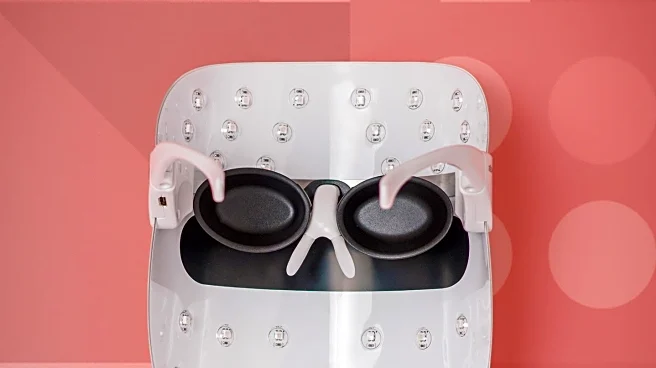What's Happening?
ShiraTronics, a medical device company, has announced positive 12-month follow-up results from its RELIEV-CM Pilot Study, which evaluates an investigational implantable neuromodulation therapy for chronic migraine. The study demonstrated sustained reductions in headache frequency and severity, as well as improvements in migraine-specific quality of life. The therapy involves a fully implantable system that delivers low-level electrical stimulation to modulate pain signaling within the trigeminocervical complex, targeting the occipital and supraorbital nerves. This approach offers a personalized, drug-free treatment option for chronic migraine sufferers, who often experience significant disruption in their lives due to frequent headaches.
Why It's Important?
Chronic migraine affects over 5.5 million individuals in the U.S. annually and is considered one of the most disabling neurological disorders. Current treatments, such as CGRP monoclonal antibodies and Botox, often have limited effectiveness and adherence issues. The ShiraTronics system provides a continuous, patient-controlled therapy that could address these limitations by offering a more durable and tolerable solution. The positive results from the pilot study suggest that this therapy could significantly improve the quality of life for patients who have exhausted conventional treatment options, potentially reducing the burden on healthcare systems and improving patient outcomes.
What's Next?
ShiraTronics is currently enrolling participants in its RELIEV-CM2 pivotal trial, a larger, randomized, double-blind study to further evaluate the safety and efficacy of the system. The therapy has received Breakthrough Device Designation from the U.S. Food and Drug Administration (FDA), which could expedite its path to market. The company anticipates revealing results from this pivotal study in 2026, which will be crucial for obtaining FDA premarket approval. If successful, the therapy could become a new standard of care for chronic migraine, offering hope to millions of patients.
Beyond the Headlines
The development of this neuromodulation therapy highlights the growing trend towards personalized medicine and the use of advanced technology to address complex neurological conditions. The success of such therapies could pave the way for similar innovations in other areas of chronic pain management, potentially transforming treatment paradigms and improving patient outcomes across various conditions.









